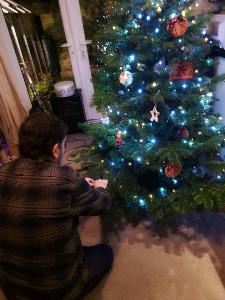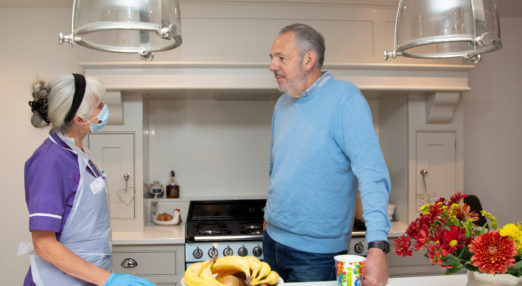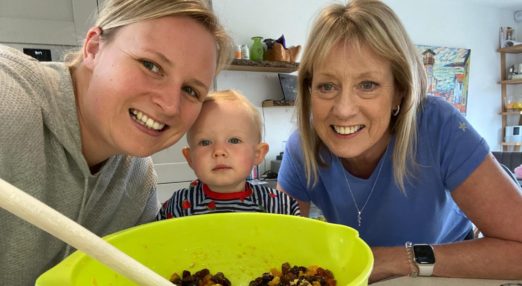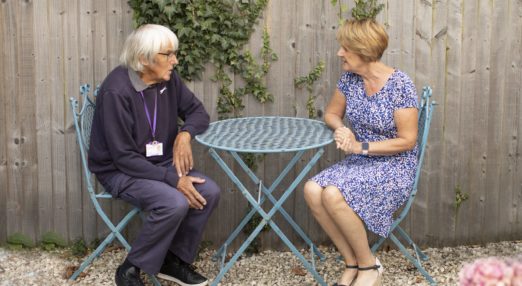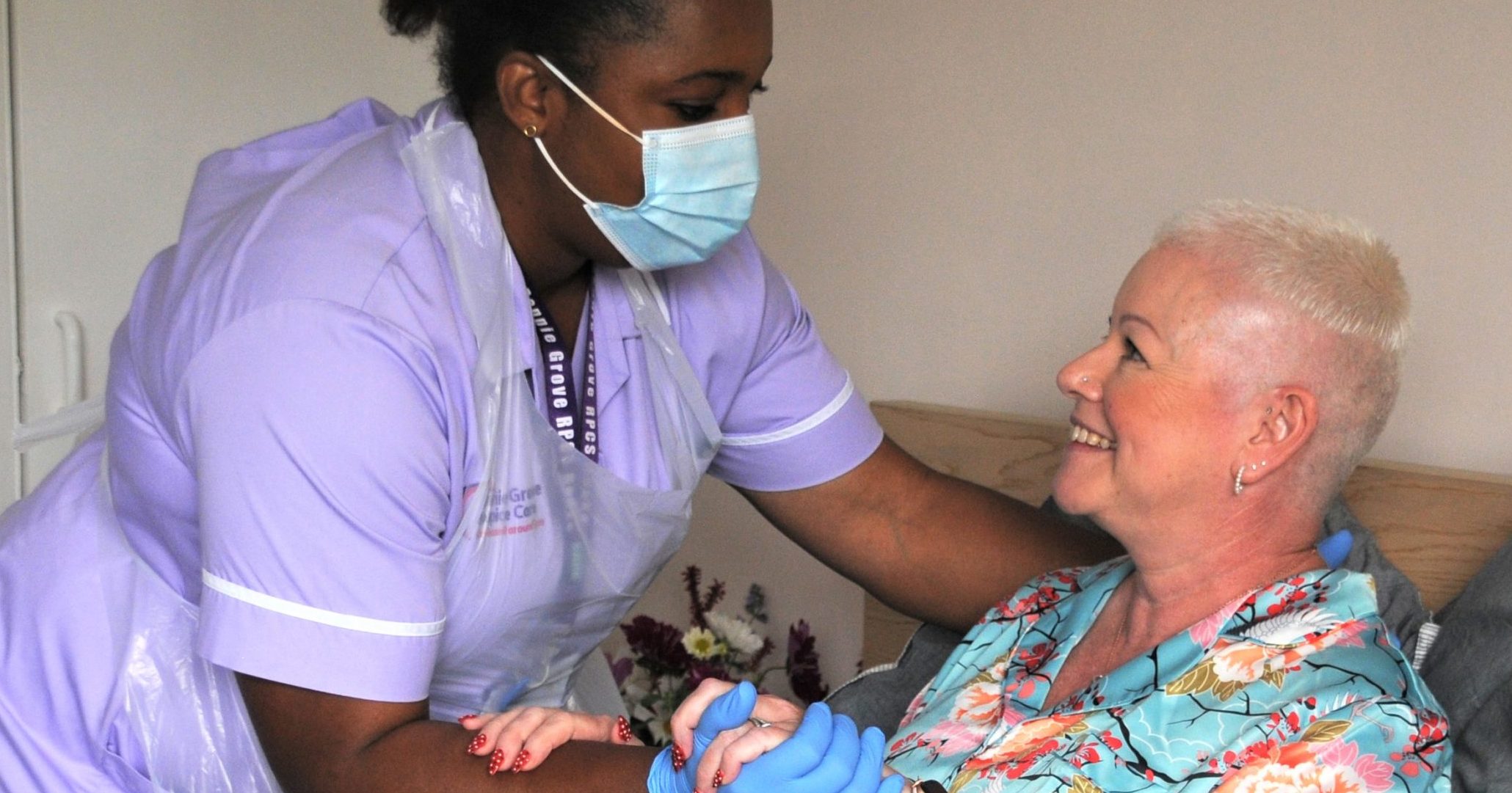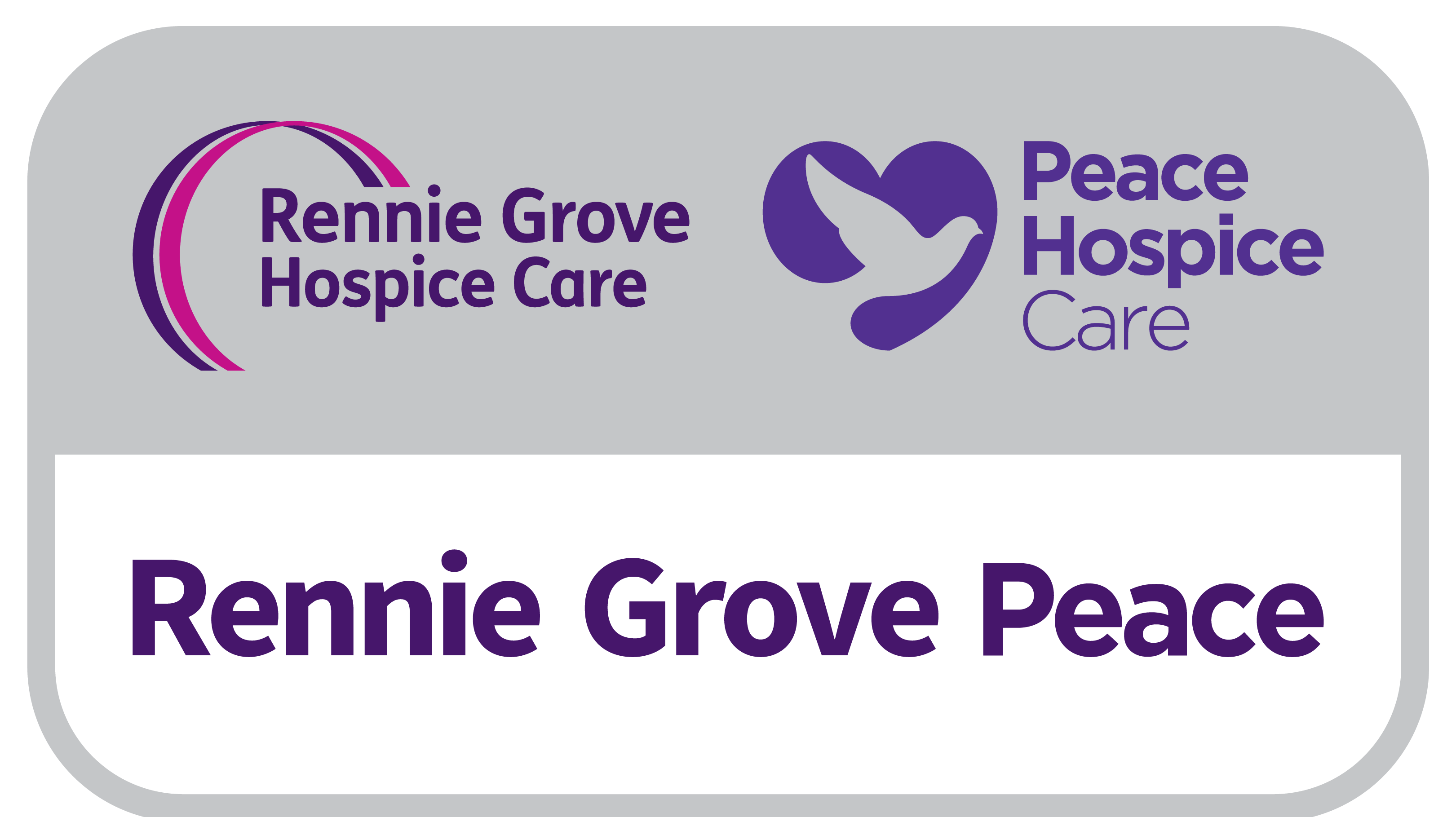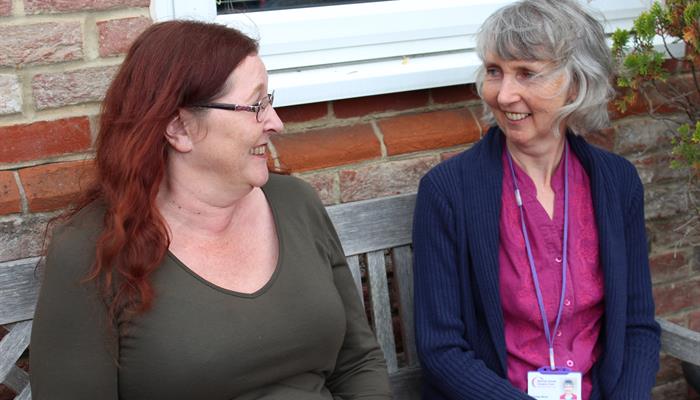“But I managed to get him to the surgery the next day and he couldn’t explain what was wrong to the GP. He struggled so much to explain that it must have rung alarm bells. She sent us straight for a scan. This was a few days before Christmas. The scan showed up a mass on his brain – it was so big and so aggressive that they wanted to operate straight away. He had surgery just 48 hours after diagnosis – on Christmas Eve. I remember Kat, Andy and I visiting him in hospital on Christmas Day, although he wasn’t really aware we were there. Christmas dinner that year was petrol station sandwiches eaten in a car park.
“Paul was able to come home in time for his birthday on 30th December – he was 60 that year. It was not the celebration any of us had planned – but he was alive and he was back home.”
“But that was just the start. It wasn’t just the physical debilitation – he got shingles, thrombosis (I had to inject him every day for six months) – but he became terribly depressed. The tumour was centred round his speech and taste centre. Things tasted awful sometimes but there was no consistency – no real pattern to it. So his appetite and his eating were very erratic. He used to love strawberries but he never ate them again. He found it even harder to locate the right word and he would get so frustrated with himself. He could no longer paint or play the guitar. These loves of his life had been taken away from him. His memory was really badly affected too; some days he would ask us the same question five or six times. He didn’t suffer too much with headaches and he was ‘lucky’ not to be in pain – but it was just so frustrating for him – and heart-breaking for us to watch…
“The worst part was that the tumour was still growing. It had started ‘tracking’ – growing deeper into the brain. So the surgeons wanted to try and halt or slow its progress with another operation. He had that surgery awake… and all seemed to be fine. But unfortunately he had a stroke soon after that procedure, which created a huge step change in terms of the help we all needed.
“It was a double-whammy: a brain tumour and then a stroke. The doctors tried treating the tumour with chemo and daily radiotherapy. Paul’s trademark was his long, wavy hair and thick, bushy beard. To target his radiotherapy treatment, the hospital had to make a mask, literally pinning him down in order to create a bespoke mould around his face. They said they couldn’t do it properly with his long hair and beard and so we had to shave it off. He looked so different without that amazing mane of hair. It grew back grey – he’d hardly a grey hair on his head before.
“He had a really rough time with simultaneous chemo and radiotherapy – it made him so ill. I could see he was deteriorating despite their best efforts. It felt tantamount to torture and so he stopped the treatment. It’s horrible what this disease does to somebody. This person you love so much is going through hell, and the worst of it is – you know it’s terminal.
“Paul was always adamant that he didn’t want to go into hospital or a hospice. But there’s no way he could have stayed at home without the help of the Rennie Grove nurses. They arranged for physios, a speech therapist, special equipment, commode, zimmer frame, hospital bed and carers to visit four times a day. They liaised with the doctor for us. They took all sorts of stressful things out of our hands so we had time just to be together.”
“Just being able to talk so openly about what’s worrying you… have really frank discussions – be really open – ask the questions that no-one wants to ask, but which you need to know the answers to if you’re going to get through this. That’s something the Rennie Grove nurses bring that should never be under-estimated. You can’t put a price tag on that sort of support.
“The nurses also arranged for ‘just in case’ medication, which gave us real peace of mind. We knew the day would come when the stuff would come into play – but we had it in place and it gave us time to think and talk about it before we needed it. This made it so much easier to deal with each stage of Paul’s illness.
“Because we had the JIC meds, when we needed to call the Rennie Grove nurses out in the middle of the night, they could come and increase the dose almost immediately. It meant Paul remained as comfortable as possible and didn’t have to be admitted to hospital, which he would have hated.
“One time we’d called them out, and Paul had gone back to sleep when they arrived. But they still stayed and spent an hour talking to me. That made such a difference; just having that support and the chance to off-load to someone who understood and could reassure me I was doing OK. Their support and the network they set up gets the whole family through. They weren’t just looking after Paul but me, Kat, Andy, my parents… Their care is all-encompassing.
“On the day Paul died, my friend had popped round with an array of M&S meals that friends had clubbed together to buy for us. We were chatting and she was even doing a spot of cleaning. Paul’s breathing had changed overnight – a gurgling sound with long, erratic pauses between breaths. My friend was just about to leave and I remember she turned and stood in the doorway to say a prayer for us. At that moment Paul took a deep breath… I rushed out to the caravan to tell Kat ‘Dad’s going’. We were all able to be there as he passed – even our 18-year-old cat, Billy, who’d been velcroed to Paul since he got ill. That might not have been possible had we been in hospital.
“After Paul died, we were able to spend some time with him as a family. I could have rung Rennie Grove straight away – but I knew the nurses were due to come within the hour, as part of their scheduled visits. When they arrived, they washed and dressed him – then talked us through the next steps. It was so good to have their calm, practical support and friendly, caring advice. It gave us all the chance to talk through how we felt and what we should do next.
“The Rennie Grove nurses enable the whole family to be together. Billy – our 18-year-old cat – was velcroed to Paul. If he was in bed, he’d be in bed with him; if he was in the lounge, he’d be in there with him. He became our radar for Paul: if Billy came bowling in from the garden, we knew Paul was awake. The day they came to take away the hospital bed, Billy was distraught. He just sat and howled. He usually purred when you picked him up but he was inconsolable. I sort of know how he feels…
“Almost a year on, I still sometimes see one of the Rennie Grove nurses in my local pub and in the supermarket. The first thing she does is to come straight over and give me a big hug. That means so much and it shows how the bond builds up between you. They are specialists in their field but it feels like it’s more than just a job to them. They work with such unwavering commitment… it gives you hope and it restores your faith in humanity to see how such a tragic situation brings out the best in people.”
January 2019
